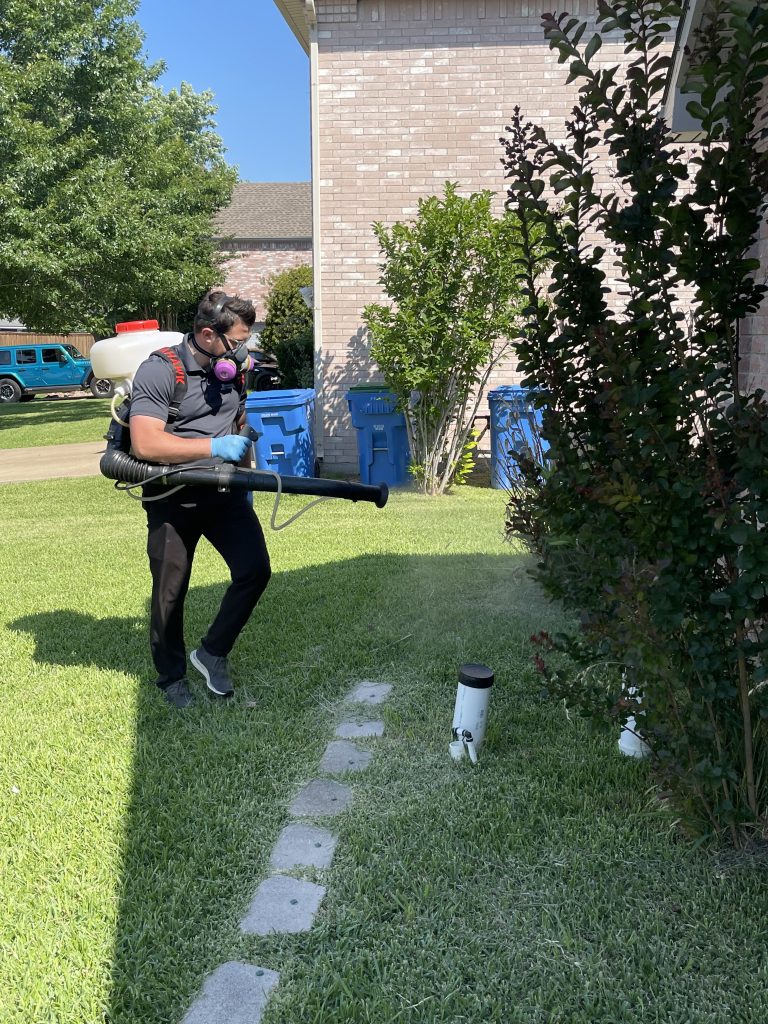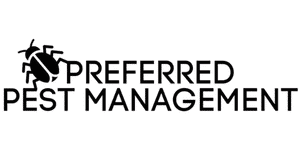When renting a home, it can be difficult to determine who is responsible for pest control and rodent issues. Knowing who is liable for dealing with the problem helps tenants protect their health, safety and property from potential damage caused by pests or rodents. Who is responsible for pest control when renting? Generally speaking, landlords are obligated to provide safe living conditions; however there may be times where tenants have some responsibility as well. In this blog post we will explore common pests in rental properties, how to find out who is ultimately responsible for taking care of them, and tips on negotiating that responsibility with your landlord or property manager.
Table of Contents:
- Who is Responsible for Pest Control When Renting?
- Common Pests in Rental Properties
- How to Find Out Who is Responsible for Pest Control?
- Tips for Negotiating Pest Control Responsibility with Your Landlord or Property Manager
- FAQs in Relation to Who is Responsible for Pest Control When Renting?WHO calls pest control in a rental property?
- Conclusion
Who is Responsible for Pest Control When Renting?
Generally speaking, tenants are typically responsible for controlling pests that enter the rental unit from outside sources. This includes things like rodents and insects that may have been brought in by visitors or other means. Landlords are usually responsible for taking care of any infestations caused by structural issues such as leaks or cracks in walls and foundations.
Tenant Responsibility
Tenants are generally expected to take steps to prevent pests from entering their rental units, such as keeping food stored properly and cleaning up after themselves regularly. If you live in the Dallas, TX area, Preferred Pest Management is available to help tenants with their pest control needs. If an infestation does occur due to tenant negligence, then the tenant will be held liable for extermination costs. Additionally, if a tenant notices signs of an infestation before moving into a rental unit they should notify the landlord immediately so that appropriate measures can be taken to eradicate the problem before it gets worse.

Landlord Responsibility
Landlords must provide tenants with safe living conditions free from health hazards including pests such as rats and cockroaches which can cause serious illnesses if left unchecked. It is also the responsibility of landlords to maintain buildings in good condition so that pests cannot gain access through cracks or holes in walls or foundations etc., as well as ensuring proper sanitation practices are followed throughout all common areas of their properties (e.g., hallways).
Negotiating Responsibility
If there is disagreement between tenants and landlords about who should pay for pest control services then it may be necessary to negotiate responsibility between them both parties involved based on local laws and regulations regarding pest control responsibilities within rentals agreements. When negotiating responsibility, it is important for both parties to remain reasonable while being aware of their rights under applicable law(s). Tenants should also consider offering partial payment towards professional services if needed, while requesting regular inspections/maintenance checks from landlords in order to help prevent future infestations occurring at their property.
When it comes to pest control in rental properties, both the tenant and landlord have a responsibility for ensuring the property is kept safe from pests. In this article, we’ll explore common pests that can be found in rental properties and how best to manage them.
Key Takeaway: Tenants and landlords should be aware of their respective responsibilities when it comes to pest control in rental properties. Tenants are responsible for preventing pests from entering, while landlords must maintain buildings and provide safe living conditions. Negotiations may be necessary if there is disagreement between parties.
Common Pests in Rental Properties
Rodents

Rodents are one of the most common pests found in rental properties. They can cause a lot of damage to furniture, walls, and other items in the home. Signs of rodent infestation include droppings, gnaw marks on wood or plastic objects, and tracks in dusty areas. To prevent rodents from entering your rental property, make sure all entry points are sealed properly and that food is stored away securely.
Insects and Bugs
nsects and bugs such as ants, cockroaches, bedbugs, fleas, spiders and moths can also be a problem for renters. These pests can spread quickly throughout the home if not dealt with promptly. Look out for signs such as droppings or webs around windowsills or baseboards to identify an infestation early on. Regularly cleaning up crumbs or spills will help keep these pests at bay by removing their food source.
If you notice any wildlife activity inside your rental property, it is important to contact a professional pest control service immediately. This will allow them to assess the situation safely without putting yourself at risk of injury from wild animals that may carry diseases such as rabies. If you live in the Dallas, TX area and have an issue with rodents or general pests, Preferred Pest Management services both residential and commercial buildlings and may be able to help.
Pests can cause damage and health risks, so it is important to be aware of common pests in rental properties. To determine who is responsible for pest control when renting, read on to learn how to find out.
How to Find Out Who is Responsible for Pest Control?
To determine this, there are several steps you can take.
First, read the lease agreement carefully. This document should clearly state who is responsible for pest control in the rental unit and what services they will provide. If the landlord or property manager has agreed to provide pest control services as part of your lease agreement, make sure you understand exactly what those services entail and when they will be provided.
Second, ask the landlord or property manager directly if you have any questions about their responsibilities regarding pest control. They may be able to answer any questions that weren’t addressed in the lease agreement or provide additional information on how often they plan to inspect and treat for pests in your rental unit.
Finally, check local laws and regulations regarding pest control responsibility before signing a lease agreement with your landlord or property manager. Some cities require landlords to hire professional exterminators at least once per year while others only require them to respond promptly when tenants report an infestation issue within their rental units. Knowing these rules ahead of time can help ensure that both parties are aware of their obligations when it comes to dealing with pests in the rental unit, and prevent any potential disputes down the line.
By understanding your rights as a tenant, local laws and regulations, and being willing to negotiate with your landlord or property manager, you can find out who is responsible for pest control in the lease agreement. Now let’s look at some tips for negotiating responsibility with your landlord or property manager.
Tips for Negotiating Pest Control Responsibility with Your Landlord or Property Manager
When it comes to negotiating pest control responsibility with your landlord or property manager, knowledge is power. It’s important to be aware of your rights as a tenant and local laws and regulations regarding pest control responsibility. In some cases, you may even be able to offer to pay for part of the cost of professional services if necessary.
Be Knowledgeable About Your Rights as a Tenant and Local Laws and Regulations Regarding Pest Control Responsibility
Make sure you know what the law says about who is responsible for pest control in your area before entering into negotiations with your landlord or property manager. This will help ensure that any agreement reached between both parties adheres to local laws and regulations.
Offer to Pay for Part of the Cost of Professional Services if Necessary
If it turns out that you are responsible for paying for pest control services, consider offering to split the costs with your landlord or property manager. This can often result in more favorable terms than having them foot the entire bill themselves.
Negotiate regular inspections by a qualified exterminator so potential infestations can be identified early on before they become an issue. Additionally, ensure that maintenance tasks such as sealing cracks around windowsills, doors, pipes etc., are carried out regularly in order to prevent pests from entering the premises.
FAQs in Relation to Who is Responsible for Pest Control When Renting?
WHO calls pest control in a rental property?
The responsibility for pest control in a rental property typically falls on the landlord or property owner. The landlord is responsible for providing a safe and healthy living environment, which includes taking measures to prevent pests from entering the premises. Depending on local laws, landlords may be required to provide regular pest control services such as termite inspections and treatments. Pest control professionals can also be hired by tenants if they are unable to resolve an infestation issue with their landlord.
Who Pays for Pest Control Landlord or Tenant in Texas
When it comes to pest control in Texas, the responsibility for payment typically falls on the landlord. This is because landlords are responsible for providing a safe and habitable environment for their tenants.
In some cases, however, this responsibility may be negotiated between the tenant and landlord prior to signing a lease agreement.
In Texas, state law requires that landlords provide “habitable premises” which includes protection from pests such as rodents or insects.
The Texas Property Code states that “a landlord must make reasonable efforts to keep common areas of the premises free from rodents and other pests.” Therefore, if an infestation occurs during a tenancy period then it is likely that the landlord will be held responsible for paying any costs associated with exterminating them.
It is important to note that while landlords are generally responsible for pest control in Texas they can also require tenants to pay certain fees related to extermination services as long as these fees are outlined in the lease agreement prior to move-in day.
For example, if there is evidence of an existing infestation when you move into your rental property then your landlord may ask you cover part or all of its cost depending on what was agreed upon beforehand.
Overall, when it comes down who pays for pest control in Texas; most often it’s going to be up to the discretion of both parties involved – meaning either party could potentially end up footing at least part of bill depending on what was previously agreed upon within their lease agreement or through negotiations afterwards should an issue arise after move-in day .
Conclusion
When it comes to pest control when renting, it is important to know who is responsible for the issue. It can be a difficult situation if you are not sure whether your landlord or tenant is responsible. However, by understanding common pests in rental properties and how to find out who is responsible for pest control, you can make an informed decision on who should take care of the problem. Additionally, there are tips that you can use when negotiating with your landlord or property manager about taking responsibility for pest control issues. Ultimately, knowing who is responsible for pest control when renting will help ensure that everyone involved understands their roles and responsibilities in keeping the property safe from pests.
Are you a tenant or landlord in the Dallas, TX area who needs help managing pests in your rental property? Preferred Pest Management is here to provide comprehensive solutions for all of your pest control and wildlife service needs. With over 15 years of experience, we understand that as a renter, it can be difficult to determine who is responsible for controlling pests on the property – but with our expertise and experience we are able to quickly identify potential problems and develop effective strategies tailored specifically for each situation. Don’t wait any longer; contact us today so we can work together towards eliminating pesky critters from your home!


